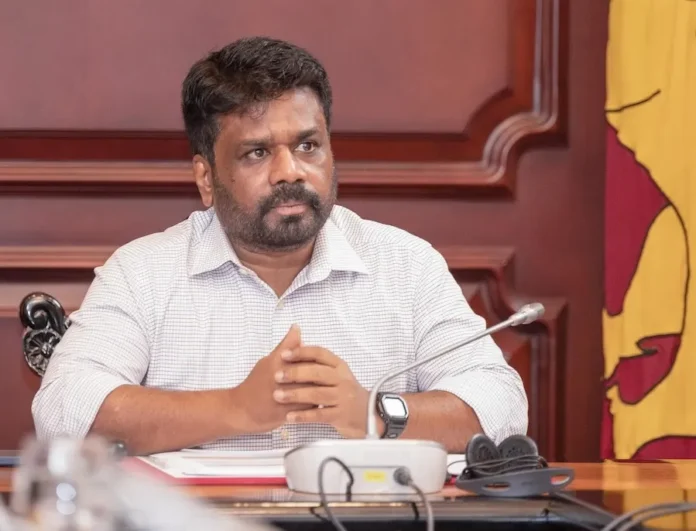President Anura Kumara Dissanayake yesterday (July 8) emphasised the urgent need to strengthen and digitalise the Inland Revenue Department (IRD) as a cornerstone of achieving Sri Lanka’s digital economy objectives by 2030.
The President made these remarks during a high-level discussion held at the Presidential Secretariat with key representatives from the IRD, the Ministry of Digital Economy, and the Ministry of Finance, according to the President’s Media Division (PMD).
A major focus of the meeting was the ongoing operation and local procurement process of the IRD’s Revenue Administration Management Information System (RAMIS). The discussion also explored current shortcomings in the system and the technological solutions required to address them.
President Dissanayake stressed that digitalisation is essential for effective tax administration, noting that it plays a vital role in reducing tax irregularities, simplifying procedures, and enhancing transparency. He also called for the introduction of Point of Sale (POS) machines to modernise transactions and ease the tax payment process for citizens.
According to the PMD, these reforms are designed to expand the national tax base and support Sri Lanka’s broader digital transformation agenda.
Officials from the Inland Revenue Department noted that the creation of a dedicated Ministry for Digital Economyunder the current administration will significantly accelerate the IRD’s digitalisation efforts.
The digital transformation of the IRD is seen as a critical component of the government’s overall economic strategy and is expected to drive long-term growth and efficiency across public financial systems.
Key attendees at the meeting included Secretary to the President Dr. Nandika Sanath Kumanayake, Finance Ministry Secretary Dr. Harshana Suriyapperuma, Chief Advisor to the President on Digital Economy Dr. Hans Wijesuriya, and senior officials from the IRD, Ministry of Finance, and Ministry of Digital Economy.
